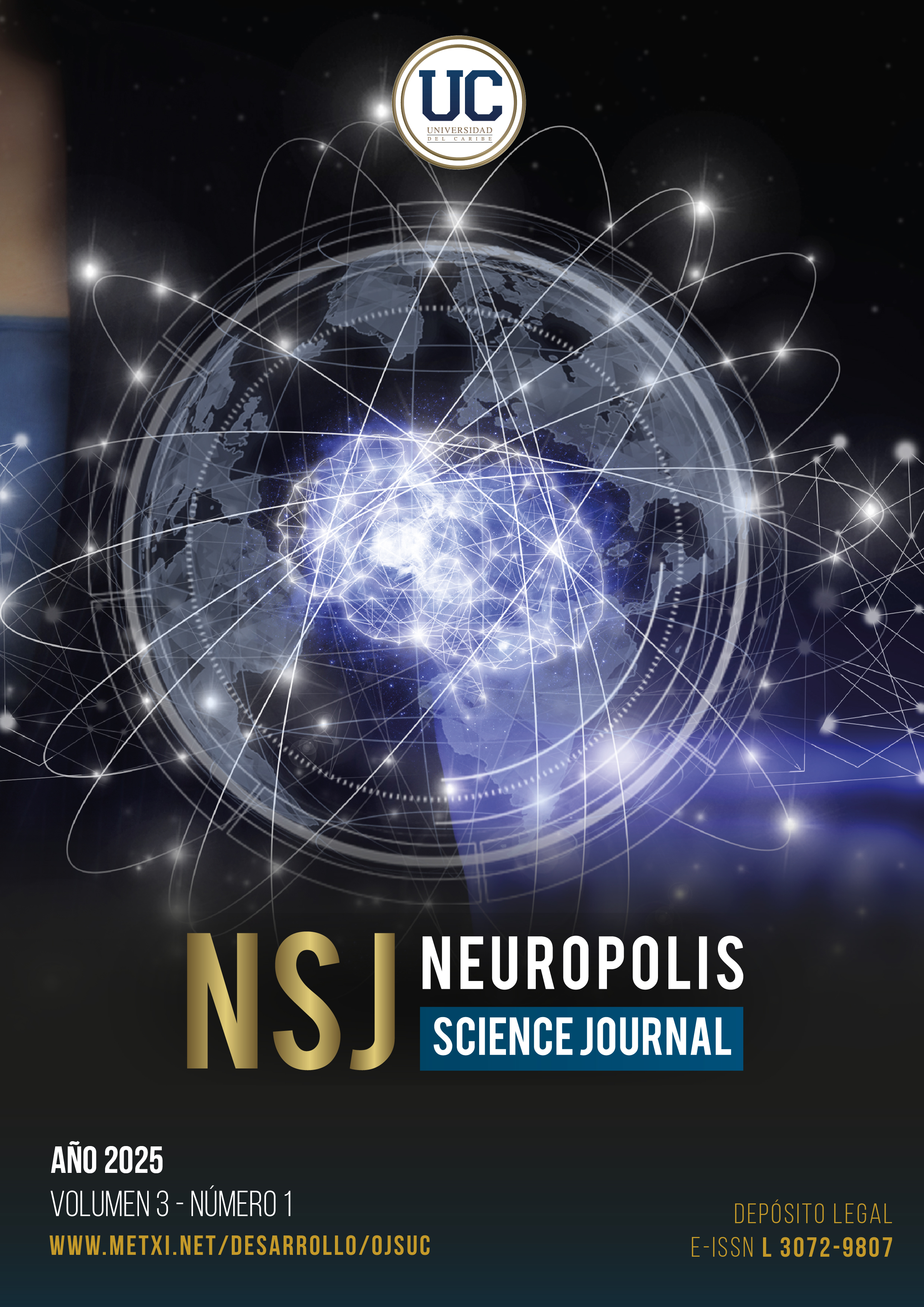Strategic management models for the adoption and integration of emerging technologies in venezuelan higher education
Main Article Content
Section
Abstract
The strategic management of emerging technologies represents a critical challenge for the sustainability and competitiveness of Venezuelan universities in a rapidly transforming global digital environment. This study, grounded in a post-positivist paradigm and a mixed-methods approach (concurrent embedded design - QUAN-qual), aimed to analyze strategic management models for the incorporation of emerging technologies in these institutions, identifying factors influencing their adoption and effectiveness. A multiple case study was implemented, including one public, one private, and one experimental university, all located in Maracaibo, Zulia. The methodology combined qualitative data collection (20 semi-structured interviews with key managers and faculty, and document analysis) with quantitative data (a survey administered to 120 faculty members and managers). Findings revealed that technology management is predominantly reactive and fragmented, with cultural resistance and a lack of technological leadership emerging as significant barriers, as impactful as the scarcity of financial resources. A critical gap in human talent training was identified, and it was confirmed that the effectiveness of management models is highly dependent on the particular context of each institution type. In conclusion, university digital transformation in Venezuela demands a paradigm shift towards proactive planning, an innovation-oriented organizational culture, and sustained investment in developing staff digital competencies, all adapted to institutional specificities.

This work is licensed under a Creative Commons Attribution-NonCommercial 4.0 International License.
Downloads
Article Details
How to Cite
References
Altbach, P. G., Reisberg, L., & Rumbley, L. E. (2021). The global university: Realities and challenges. Johns Hopkins University Press. DOI: 10.1007/978-1-4020-4012-2_8
APA. (2017). Ethical Principles of Psychologists and Code of Conduct. American Psychological Association.
Bates, T. (2020). Teaching in a digital age: Guidelines for designing courses for learners. Tony Bates Associates Ltd. DOI: 10.19173/irrodl.v18i3.3107
Bowen, G. A. (2009). Document Analysis as a Qualitative Research Method. Qualitative Research Journal, 9(2), 27-40. DOI: 10.3316/QRJ0902027
Braun, V., & Clarke, V. (2021). Thematic analysis: A practical guide. Sage Publications. DOI: 10.58837/CHULA.PPJ.39.8
Bryman, A. (2016). Social Research Methods. Oxford University Press.
Creswell, J. W., & Creswell, J. D. (2018). Research design: Qualitative, quantitative, and mixed methods approaches. Sage Publications. DOI: 10.1002/nha3.20258
Dappert, J., & Maedche, A. (2023). Extended Reality in Higher Education: A Systematic Literature Review. Journal of Computer Assisted Learning, 39(2), 263-281. DOI: 10.1007/s11528-025-01092-y
Dwivedi, Y. K., Kshetri, N., Hughes, L., Slade, E. L., Jeyaraj, A., Kar, A. K., ... & Uddin, M. R. (2023). So what if ChatGPT wrote it? Multidisciplinary perspectives on opportunities, challenges and implications of generative conversational AI for research, practice and policy. International Journal of Information Management, 71, 102642. DOI: 10.1016/j.ijinfomgt.2023.102642
García-Peñalvo, F. J., Conde, M. Á., & García-Holgado, A. (2022). The impact of the COVID-19 pandemic on Higher Education: An analysis from the perspective of innovation and digital transformation. Journal of Universal Computer Science, 28(4), 316-339. DOI: 10.4018/978-1-7998-4156-2.ch001
Johnson, R. B., Onwuegbuzie, A. J., & Turner, L. A. (2021). Toward a definition of mixed methods research. Journal of Mixed Methods Research, 17(1), 1-18. DOI: 10.1177/1558689806298224
Kvale, S., & Brinkmann, S. (2015). InterViews: Learning the Craft of Qualitative Research Interviewing. Sage Publications. DOI: 10.1002/nha3.20251
Lincoln, Y. S., & Guba, E. G. (2000). Paradigmatic controversies, contradictions, and emerging confluences. In N. K. Denzin & Y. S. Lincoln (Eds.), Handbook of qualitative research (2nd ed., pp. 163-188). Sage Publications.
Mayer-Schönberger, V., & Cukier, K. (2023). Big data: A revolution that will transform how we live, work, and think. Houghton Mifflin Harcourt. DOI: 10.25009/clivajes-rcs.v0i9.2536
OECD. (2023). Education at a Glance 2023: OECD Indicators. OECD Publishing.
Pérez-García, A., Rojas, M., & Zambrano, D. (2023). Challenges and opportunities for digital transformation in Venezuelan higher education institutions. International Journal of Educational Technology in Higher Education, 20(1), 1-18. DOI: 10.1108/978-1-78973-627-420191012
Patton, M. Q. (2015). Qualitative Research & Evaluation Methods. Sage Publications. DOI: 10.1590/S1415-65552003000200018
Pîrlogea, C., & Pîrlogea, I. (2022). Blockchain in higher education: A systematic review. Computers & Education Open, 3, 100065. DOI: 10.53056/njmsr-2021.001.2
Saldaña, J. (2021). The Coding Manual for Qualitative Researchers. Sage Publications. DOI: 10.29333/ajqr/12085
Radianti, J., Majchrzak, T. A., Fromm, J., & Wohlgenannt, I. (2020). A systematic review of immersive virtual reality applications for higher education: Design elements, user experiences, and learning effectiveness. Journal of Computer Assisted Learning, 36(6), 724-743. DOI: 10.1016/j.compedu.2019.103778
Salmi, J. (2021). The Great Shift: Higher Education Adaptations to the Future. MIT Press. DOI: 10.31992/0869-3617-2019-29-3-9-23
Schwab, K. (2020). The Fourth Industrial Revolution. Crown Business. DOI: 10.18800/economia.201801.012
Selwyn, N. (2023). Digital education: The future of teaching and learning. Routledge. DOI: 10.1007/s11159-022-09971-9
Siemens, G., & Gašević, D. (2023). Learning analytics: The science of learning at scale. MIT Press. DOI: 10.18608/hla22.001
UNESCO. (2020). COVID-19 and higher education: Impact and responses. UNESCO Publishing.
UNESCO. (2021). Education 2030: Towards inclusive and equitable quality education and lifelong learning for all. UNESCO Publishing.
Williamson, B., & Eynon, R. (2020). The datafication of education: The school as a data platform. Routledge. DOI: 10.4324/9781351252805-14
Yin, R. K. (2018). Case Study Research and Applications: Design and Methods. Sage Publications. DOI: 10.3138/cjpe.30.1.108
Zabalza, M. A., & Zabalza, M. A. (2021). Competencias docentes del profesorado universitario. Calidad y desarrollo profesional. Narcea Ediciones. DOI: 10.15366/jospoe2023.17.005

